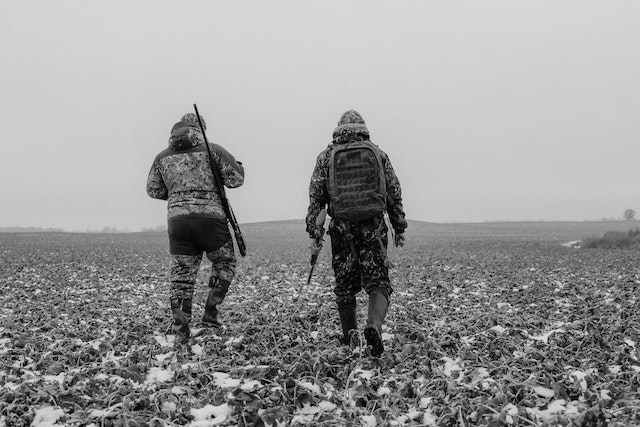For many people, hunting is a time-honored tradition and an exciting way to connect with nature. However, new hunters may face unexpected challenges that can make their first hunting experience daunting. This article will explore some of the most common obstacles new hunters should know before heading out into the woods.
Surprising Obstacles New Hunters Should Know About
Navigation
Finding their way through the woods may be a real test for first-time hunters. Several hunting spots are enormous, making it simple to acquire disoriented for those who have never been there before. Make sure you know how to use a compass and a map before setting off. Buying a Global Positioning System (GPS) to aid with navigation is also a good idea.
Weather
Hunting often involves spending long hours outdoors in all kinds of weather conditions. As a new hunter, you may not be prepared for the elements. You should check the forecast before stepping out, and you should dress in layers in order to be warm and dry. Additionally, be on the lookout for sudden weather shifts.
Safety
Safety is crucial for all hunters, but it can be particularly challenging for new hunters. Hunting legislation and best practices vary by region, so it’s important to study what applies to you. In case of an emergency, you should always have a first aid kit and a sound means of communication.
Equipment
New hunters may not have all the equipment they need to be successful in the field. Get yourself a good hunting rifle or bow, along with the proper attire and boots. You may also want to consider a hunting blind, tree stand, decoys, or deer feeder to increase your chances of success.
Hunting Pressure
Many hunting areas can become crowded during peak hunting season, making it difficult to find game. New hunters should be prepared to encounter other hunters and compete for hunting spots. To avoid hunting pressure, consider hunting during off-peak times or in less popular areas.
Ethics
Hunting is not just about taking a game but also about ethical practices and responsible behavior. New hunters should familiarize themselves with ethical hunting practices, including fair chase, proper shot placement, and respect for the environment. Additionally, be aware of local regulations and guidelines for hunting.
Benefits of Knowing about the Challenges That a New Hunter Might Face
Preparation
Knowing about new hunters’ challenges can help individuals to prepare for the hunt. By understanding what to expect, new hunters can invest in quality gear, train themselves physically, and familiarize themselves with local regulations and guidelines for hunting. This will improve their chances of a successful hunt and enhance their overall hunting experience.
Confidence
Understanding new hunters’ obstacles might boost confidence. New hunters who understand the challenges they may encounter can approach their first hunt with confidence and knowledge that can make the experience more enjoyable. They can also be better prepared to handle unexpected situations during the hunt.
Adaptability
Hunting can be unpredictable, and new hunters, aware of their challenges, can be better equipped to adapt to changing situations. By understanding the terrain, weather conditions, and potential obstacles, new hunters can adjust their hunting strategies to increase their chances of success.
Downsides of Knowing about the Challenges That a New Hunter Might Face
Fear and Anxiety
Learning about potential challenges can also create fear and anxiety in new hunters, making them hesitant to pursue the activity. This fear can also lead to self-doubt and a lack of confidence, making it harder for new hunters to enjoy the experience.
Discouragement
Knowing about new hunters’ challenges can discourage them from continuing the activity if they feel that the obstacles are insurmountable. That’s bad news for hunting since it means fewer people will take up the sport and fewer people will learn how to hunt.
Misinformation
If the information provided about new hunters’ challenges is inaccurate or misleading, it can lead to frustration and confusion. This misinformation can also create unrealistic expectations, making it harder for new hunters to succeed.
Conclusion
New hunters should know that hunting can be very fun yet challenging. Before entering the field, numerous considerations must be addressed, including navigation, weather, safety, and ethics. You can maximize your chances of success and have a safer hunting experience by preparing emotionally and physically, buying good gear, and learning local rules. Hunting is about connecting with nature and appreciating the ecosystem, not simply scoring the biggest buck.

















